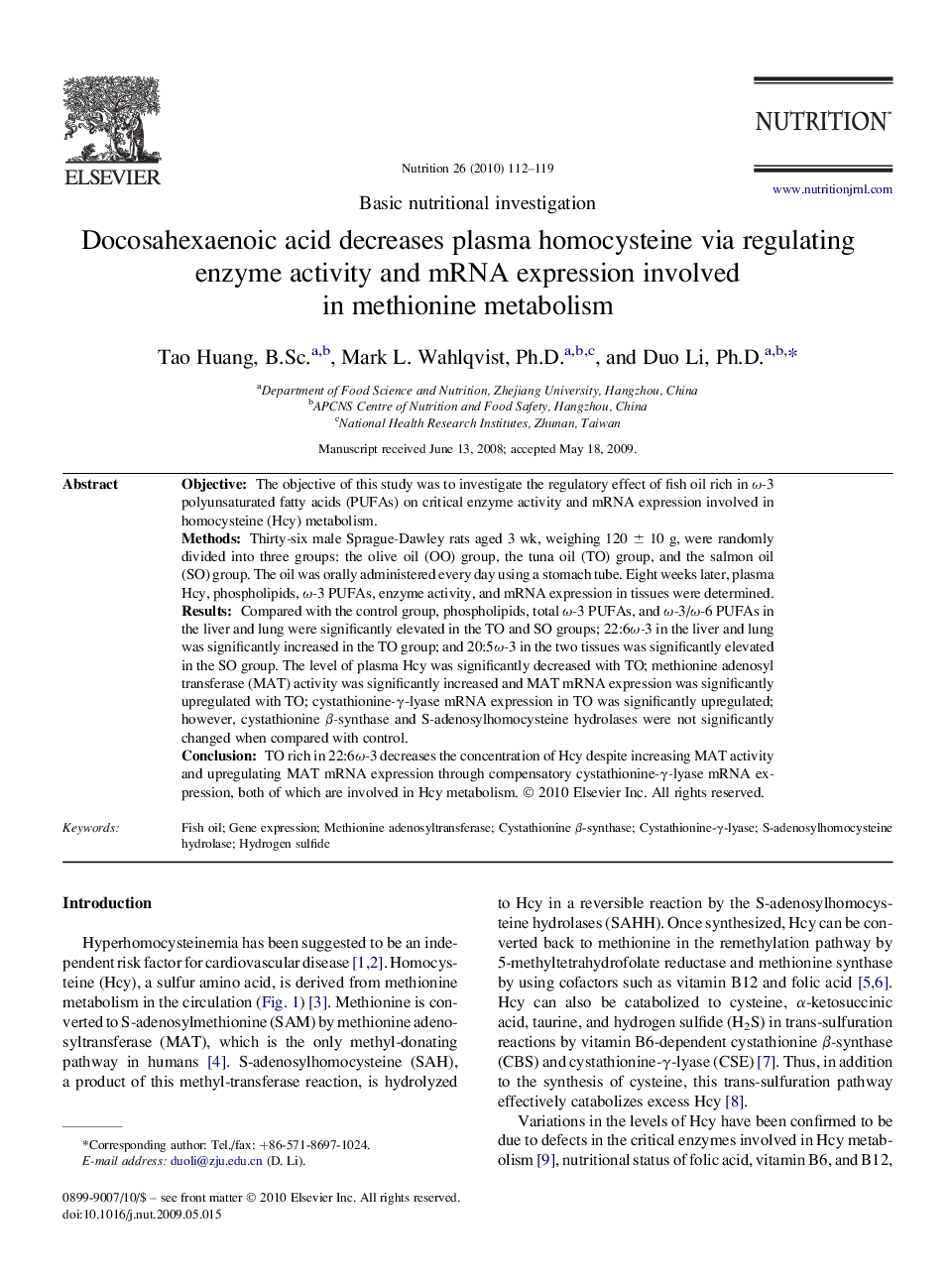| Article ID | Journal | Published Year | Pages | File Type |
|---|---|---|---|---|
| 3276886 | Nutrition | 2010 | 8 Pages |
ObjectiveThe objective of this study was to investigate the regulatory effect of fish oil rich in ω-3 polyunsaturated fatty acids (PUFAs) on critical enzyme activity and mRNA expression involved in homocysteine (Hcy) metabolism.MethodsThirty-six male Sprague-Dawley rats aged 3 wk, weighing 120 ± 10 g, were randomly divided into three groups: the olive oil (OO) group, the tuna oil (TO) group, and the salmon oil (SO) group. The oil was orally administered every day using a stomach tube. Eight weeks later, plasma Hcy, phospholipids, ω-3 PUFAs, enzyme activity, and mRNA expression in tissues were determined.ResultsCompared with the control group, phospholipids, total ω-3 PUFAs, and ω-3/ω-6 PUFAs in the liver and lung were significantly elevated in the TO and SO groups; 22:6ω-3 in the liver and lung was significantly increased in the TO group; and 20:5ω-3 in the two tissues was significantly elevated in the SO group. The level of plasma Hcy was significantly decreased with TO; methionine adenosyl transferase (MAT) activity was significantly increased and MAT mRNA expression was significantly upregulated with TO; cystathionine-γ-lyase mRNA expression in TO was significantly upregulated; however, cystathionine β-synthase and S-adenosylhomocysteine hydrolases were not significantly changed when compared with control.ConclusionTO rich in 22:6ω-3 decreases the concentration of Hcy despite increasing MAT activity and upregulating MAT mRNA expression through compensatory cystathionine-γ-lyase mRNA expression, both of which are involved in Hcy metabolism.
